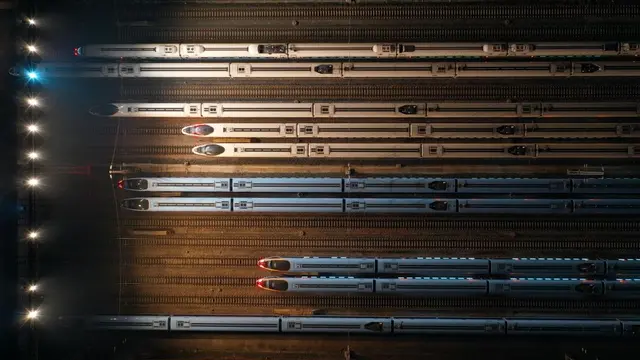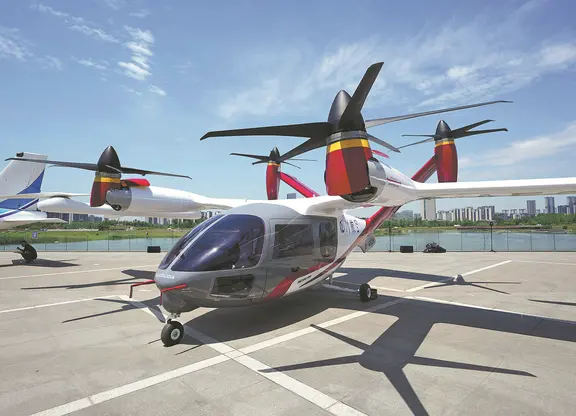Turkish-led forces secured the city of Afrin on Monday after a deadly two-month assault that dealt the Kurds a major blow and could reshape the region.
Opposition groups supporting the capture of Afrin from the Kurds condemned looting carried out by Ankara's Syrian proxies when they seized the northern city Sunday.
The most significant control of territory change in Syria this year coincided with the regime's grinding down of Eastern Ghouta, a six-year-old rebel bastion near Damascus.
President Bashar al-Assad visited reconquered areas there Sunday to hail his troops' advances, which led tens of thousands of civilians to flee to government areas after years of siege.
Syria's civil war
The Kurdish People's Protection Units (YPG) could do little when Syrian Arab fighters backed by NATO's second-largest army thrust into Afrin, nearly two months into a massive assault on the region.
The fighters, mostly former anti-Assad rebels, celebrated their victory by destroying the statue of Kurdish hero Kawa and looting shops and other property.
The pillaging drew widespread condemnation, including from Syrian opposition groups supporting the Turkish intervention.
"The looting and stealing of private and public property is a crime," said Mohamed Alloush, a key figure in the Jaish al-Islam rebel group.
"All those who took part in this decadence need to have their hands slapped hard."
Sweeping for mines
Turkish-backed Syrian Arab fighters loot shops after seizing control of the northwestern Syrian city of Afrin from the Kurdish People's Protection Units (YPG) on March 18, 2018
An AFP reporter said looting was still taking place on Monday, with fighters joking at checkpoints about their spoils.
The Britain-based Syria Observatory for Human Rights monitoring group, which relies on an extensive network of sources across Syria, also said pillaging was still under way.
The mosaic of factions hired by Turkey from Idlib province and elsewhere to wage the offensive were spray-painting their groups' names on Afrin shop fronts and walls.
They also picked through debris for bombs and unexploded ordnance after explosions killed at least 13 of them on Sunday.
The command of the operation Ankara launched on January 20 appeared to be rotating some fighters out in order to bring a police holding force.
Turkey, which has threatened to push deeper into Syria, said its operation was aimed at securing the north of the country to allow the three million Syrian refugees on its soil to return.
Ankara was also worried that the Kurds, who control some 30 percent of Syrian territory, would consolidate a statelet stretching all along the border.
'Years to come'
Turkish forces pose for a group photo in the Kurdish-majority city of Afrin in northwestern Syria after seizing control of it on March 18, 2018
Nicholas Heras, a security fellow at the Center for a New American Security, said taking Afrin was a success for President Recep Tayyip Erdogan who shrugged off international concern to press on with the operation.
"Afrin is one of the most strategic areas of northwest Syria. It is a piece of real estate that anchors Turkey's presence for many years to come," Heras said.
Bitterness ran high among the Kurds, who feel poorly rewarded for the sacrifices made when they were the ground force of the US-led coalition's war against the Islamic State jihadist group.
The Observatory said that more than 1,500 Kurdish fighters had been killed since the start of the offensive, most of them in air strikes and artillery fire.
The YPG has vowed to fight back but their chances look slim and tens of thousands of Afrin residents who fled in recent days now find themselves in limbo.
Syria's conflict, which started seven years ago this month when Assad's forces cracked down on peaceful protests demanding regime change, has killed at least 350,000 people and displaced more than half of the pre-war population of 20 million.
As his main backer Russian President Vladimir Putin secured a fourth term, Assad projected confidence Sunday in videos released by his office that showed him driving himself to recaptured areas of Ghouta.
Assad stunt
A handout picture released by the official Facebook page of the Syrian Presidency on March 18, 2018, shows Syrian President Bashar al-Assad (C) shaking hands with government troops in Eastern Ghouta during a rare visit to the former rebel enclave
Sporting a pair of sunglasses, he spoke to the camera from the wheel of his Honda as he drove past scenes of devastation.
The goals of the Islamist and jihadist groups in Ghouta "was to choke Damascus by cutting off roads and communications between cities", he said.
"Oxygen and blood are flowing again in the country's main arteries."
On February 18, Syria and its Russian ally launched a blistering aerial campaign against Eastern Ghouta, a semi-rural area within mortar range of central Damascus that had escaped regime control since 2012.
The subsequent ground offensive, led by Syrian troops and allied militia splintered the enclave into three pockets.
The regime has pursued the miliary option against two of them, causing a mass civilian exodus, but allowed the area around the main town of Douma some level of respite.
Several aid convoys organised by the United Nations and the International Committee of the Red Cross were allowed into Douma this month, while a limited number of critical patients were granted medical evacuations.
The regime did not completely release the pressure on Douma however, the latest strikes killing at least 13 people overnight, the Observatory said.
(AFP)
 简体中文
简体中文













